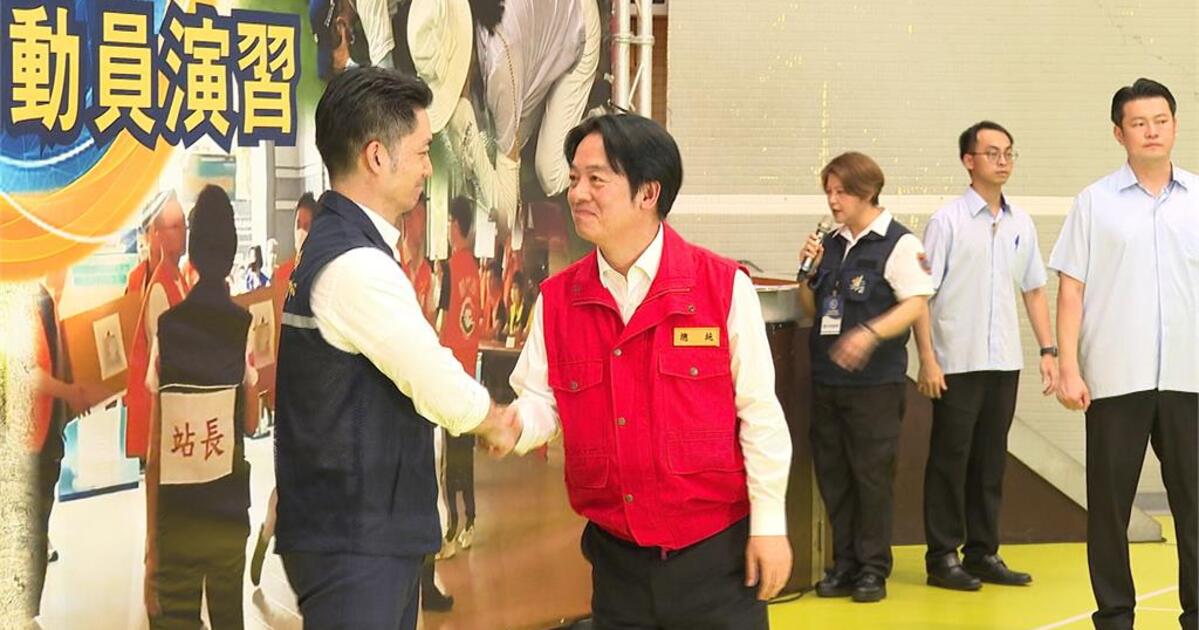TAIPEI, Taiwan — July 18, 2025 —
Taipei Mayor Chiang Wan-an and President Lai Ching-te delivered markedly different messages on national unity during a large-scale urban resilience exercise held yesterday in Taipei, revealing political tension beneath the drill’s civil defense focus.
During his speech at the drill’s opening ceremony, Mayor Chiang stressed the importance of solidarity, saying, “We are one family, and we must never point our guns inward.” He emphasized that rational and pragmatic leadership should focus on preventing Taiwan from becoming a hotspot for conflict. “True unity comes from working toward the same goal, regardless of political party or ideology,” Chiang said. “Only by uniting externally and not internally can we safeguard Taiwan.”
Standing nearby, President Lai Ching-te appeared visibly unsettled. He later responded in his own speech by asserting that unity must be built on shared national values. “Unity is not just a slogan,” Lai declared. “It comes from a common belief in resisting communism, opposing annexation, and protecting our sovereignty—and this must be reflected in concrete actions.”
The exchange came during a day-long resilience drill that included air raid simulations and emergency response exercises. Chiang first inspected operations at Songshan Elementary School, joined by National Security Council Deputy Secretary-General Lin Fei-fan and officials from the American Institute in Taiwan. The mayor and president later observed first-aid and disaster shelter drills at Zhongshan Elementary School, where they shook hands but otherwise had limited interaction.
Chiang further quoted U.S. General Douglas MacArthur, calling Taiwan an “unsinkable aircraft carrier,” and emphasized that “regardless of color, we share the same island, and we live and die with Taiwan.” He said that true security lies in avoiding war altogether through resilience and preparedness, not escalation.
President Lai responded by reaffirming the government’s intention to deter conflict through strength. “Preparing for war is not about provocation. It’s about preventing conflict and ensuring peace,” he said. Lai called on all sectors of society to recognize that defending Taiwan’s democracy is a shared duty. “We must strengthen our national defense and build a society-wide resilience. When every citizen accepts that protecting the country is their responsibility, then we truly embody unity.”
As Taiwan faces ongoing military and political pressure from Beijing, the contrasting speeches by the country’s top leaders underscored a key issue: how best to maintain internal cohesion while fending off external threats. While both emphasized the need for unity, their differing interpretations reflect the deep political divide shaping Taiwan’s future security and identity.



